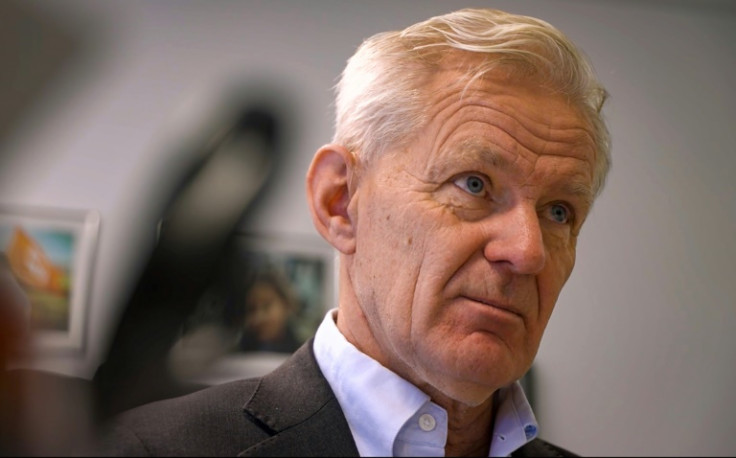
The Oslo Accords, which aimed to bring "peaceful coexistence" to Israel and the Palestinians, are now dead, one of the deal's architects, Norwegian peace worker Jan Egeland told AFP.
The agreement produced the now iconic image of Palestinian leader Yasser Arafat and Israeli prime minister Yitzhak Rabin shaking hands September 13, 1993 on the White House lawn as president Bill Clinton watched.
It was the start of a delicate process: Israel and the Palestinian Liberation Organisation (PLO) mutually recognised each other and created Palestinian self-government for an interim period of five years.
The aim was to give the two sides enough time to iron out several key issues, such as the status of Jerusalem, Israeli settlements and the fate of Palestinian refugees -- a process that struggled to make headway.
Now 30 years later, with a new bloody war raging between Israel and Islamist group Hamas in Gaza, Egeland was asked by AFP whether the accords were "pretty much dead".
"Absolutely," he said in an interview in his office in the Norwegian capital.
"The Oslo Accords are gone as an accord. Now there will be another accord and it will have to be led by the United States, the EU and the Arab countries."
The accords were the culmination of 14 rounds of secret talks in Oslo, initiated and organised by, among others, Egeland, at the time a state secretary in the foreign ministry.
For the 66-year-old former diplomat who now heads the Norwegian Refugee Council humanitarian organisation, the only viable way out of the conflict is through international mediation.
"It's not possible for Israel and Hamas to negotiate the future of these lands (alone). There will be zero trust," he said. "Israel has waged (war) to destroy Hamas. Hamas is there to eliminate Israel."
"The leaderships on either side are not at all at the level that they were at the time" of the Oslo Accords, he said.
"Those were visionary leaders, they were strong leaders, they were really leaders. Now we have populists on both sides, really."
Pictures hanging on the wall behind Egeland show him shaking hands with Arafat and US President George Bush senior.
The current conflict erupted on October 7 when Hamas fighters broke through Gaza's militarised border in an attack Israeli officials said killed about 1,200 people, predominantly civilians, with around 240 Israeli and foreign hostages also taken.
Israel's retaliatory strikes alongside a ground offensive have killed about 15,000 people, also mainly civilians and including thousands of children, according to the Hamas government in Gaza.
"After this there will be so much bitterness and hatred on both sides that there will be more violence," Egeland said.
"It's an illusion that Israel can bomb itself to security and peace.
"It is an illusion that by killing Israeli civilians, as (Hamas) did massively, and taking civilians as hostages (that) you can solve the problem of Israel existing."
But the international community is not up to the task, he lamented.
It is showing "extremely weak" leadership of late, he said.
"Where is the US leadership, the EU leadership, from UK, from France, to really help push a final settlement? And the same on the Arab side."
"It's nearly always been the problem that you're very willing to criticise the enemy of your ally, but you're not willing to push your ally to make compromises."
Egeland said the two sides would need to begin talks in secret to get the ball rolling.
"These back channels, these discreet negotiations, have the great advantage that people are not talking to the gallery," he said.
"They don't have to address whatever provocation or act of violence that happened yesterday or the day before. They can really negotiate."







